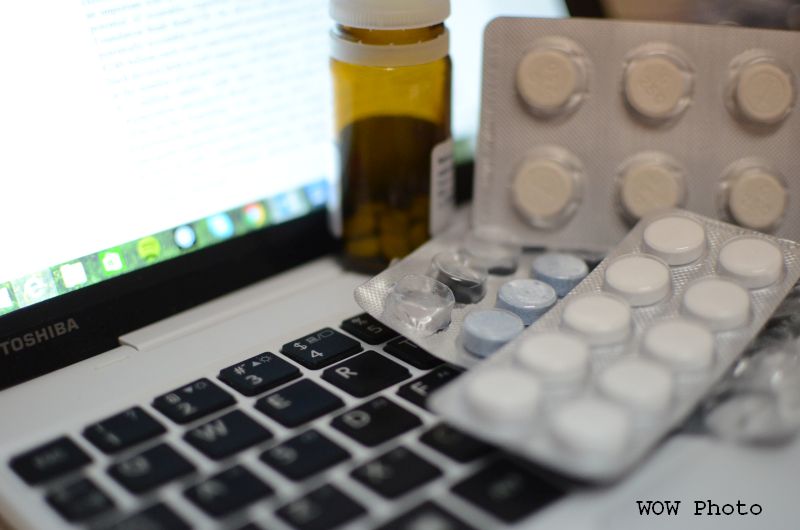We live in the fourth industrial revolution, where everything around us is already or can be connected through common things like portable devices, cars, intelligent home technology, it’s all happening already on open platforms, where everyone can contribute with new improved solutions for a better optimum and increased quality of life. We talk about Big data, zettabytes (for now) of information gathered and processed in short amount of time on specialized devices, but how can we use that information to discover optimal treatment for patients, predict a disease before it strikes and innovate in the medical field, besided uploading videos of cute kittens? Let’s talk about how smart technology fills a huge gap in the medical act using personalized medicine.
Of course we can’t outlive a turtle but nowadays we can live healthier just by downloading one of the 40,000 health care apps available on Apple’s US App Store only. Devices that monitor your blood pressure, heart beat, body posture, eating, exercising and sleeping habits are available for everyone, at small prices, they even play an important role in corporate culture. EuroScientist wrote an interesting article on potential of wearables regarding employess, showing that according to The Work Foundation think thank/UK, the direct and indirect costs of sickness absence due to potentially avoidable work-related musculoskeletal disorders (MSDs) are estimated at €240 billion each year–representing up to 2% of GDP across the EU member states. Such devices help us self-improve and gain more attention if we take a look for instance at the number of people living with diabetes: it has almost quadrupled since 1980 to 422 million adults, with most living in developing countries, World Health Organization announced ahead of World Health Day, 6 April 2016. Actually Forbes wrote at the beginning of this year about a new digital medicine for treating hypertension, another common chronical condition, using a sensor about the size of a sand grain connected, once ingested, with a mobile device such as a smartphone or iPad as well as with a healthcare provider. Biometric and descriptive data can then be retrieved via a web-based physician dashboard, thereby allowing personalized treatment decisions.
Why is personalized treatment and precision medicine important? It’s simple, we’re different on a structural level and we manifest different reactions to treatment on the same health problem especially regarding diseases like cancers and arthritis, not to mention the rare symptoms. We all know at least three “top experts” in rheumatoid arthritis in our area only that contradict each other when examining a patient. That’s because they have to take majour decisions in small amount of time, more frequently, in absence of comparing a particular case with a masive data package. Even if the doctor indicates on the prescription a certain treatment, it’s unclear how you’ll react. Nature magazine stressed out that every day, millions of people are taking medications that will not help them. The top ten highest-grossing drugs in the United States help only between 1 in 25 and 1 in 4 of the people who take them. And we’re talking about between $3-12 billion average spent on creating such a drug. The reason for that is taking in consideration an average reaction to treatment from an average patient, not the precise response coming from an individual.
It all makes more sense when you listen to Atul Butte, MD, PhD, a world-renowned expert in medical technology and professor of pediatrics in the University of California San Francisco School of Medicine, talking about the future of next-gen biotech companies and precision medicine. He makes it very clear that the fourth industrial revolution is making available for everyone vast amount of certified scientific data and the challenge is figuring out how to use it. Is is already proven that today you don’t need to spend a $billion in order to create a cure for a type of cancer or leukemia. You just take from the internet affordable gene or blood data and behaviour, figure out an algorithm to predict or cure a disease and your drug can be available for patients in less than three years. You don’t even have to come up with a new drug, you might as well reuse it in treating different conditions. But in order to do that it is necessary having great amount of data available and adequate processing technology. If we look at medical knowledge from the right to health perspective, as a universal good (in reality we usually don’t do that) we suggest that all that great data should be provided on open source platforms, so thousands of laboratories around the Globe might team up and collaborate.
When talking about precision medicine we must take in consideration the U. S. $215 million effort focused in this field only in the 2016 fiscal year. In February 2016, president Barack Obama led a panel discussion during the Precision Medicine Initiative Summit, which marked the one-year anniversary of the initiative’s launch. The most ambitious program for effective prevention and effective treatments will build a national, large-scale research participant group (cohort) of one million or more participants taking into account individual variability in genes, environment, and lifestyle for each person. The data will be processed with the help of scientists using advanced informatics capabilities.
U.S. Food and Drug Administration Center also paid attention to the Big data revolution when establishing it’s regulatory science priorities in 2016 for devices and Radiological Health: leverage “Big Data” for regulatory decision making, develop computational modeling technologies to support regulatory decision making and enhance performance of Digital Health and medical device cybersecurity are just three of the priorities explained in detail.
Where does the E. U. stand in the digital medicine world? Well, it’s clear that the internet and digital technologies play an important role since launching The Digital Single Market, a plan for moving from 28 national markets to a single one, a €415 billion per year income to our economy plus hundreds of thousands of new jobs. Each country published in May-December 2015 a report showing how digital they really are. One of the topics analized were ePrescriptions, general practitioners who use electronic networks to transfer prescriptions to pharmacists. The result pointed to an 27% E. U. average with examples like: 21% in UK, 53% in Spain, 97% in Sweden, 60% in Romania, 94% in Netherlands, 9,2% in Italy, 15% in Germany, 28% in France, 4,9% in Belgium and so on. Even with a such poor average, the E. U. agreed on the importance of eHealth and cooperation between nations for Horizon 2020 innovation, planned to run from 2014 to 2020 with an €80 billion budget, the EU’s new Programme for research.
Horizon 2020 has many related activities, even an unique call Personalised Medicine, dedicated to active ageing and self-management of health, methods and data and coordination activities using Open Science that provides researchers, businesses and citizens with improved and free of charge online access to EU-funded research results, including scientific publications and research data (e.g.: active ageing and self-management of health, eHealth innovation in empowering the patient, PPI for deployment and scaling up of ICT solutions for active and healthy ageing, EU-Japan cooperation on Novel ICT Robotics based solutions for active and healthy ageing at home or in care facilities, Personalised coaching for well-being and care of people as they age, In-silico trials for developing and assessing biomedical products, Personalised computer models and in-silico systems for well-being, Big Data supporting Public Health policies, PPI for uptake of standards for the exchange of digitalised healthcare records, Digital health literacy, Healthcare Workforce IT skills)
With Big data combined with a sharing culture of clinical trials and other research elements comes also big responsibility. We mustn’t forget about patient safety and rights, about what’s considered ethic in different local backgrounds or about enhancing security of medical devices.
Digital Medicine was one of the two main topics discussed in the Cluj Innovation Days Agenda 2016.



